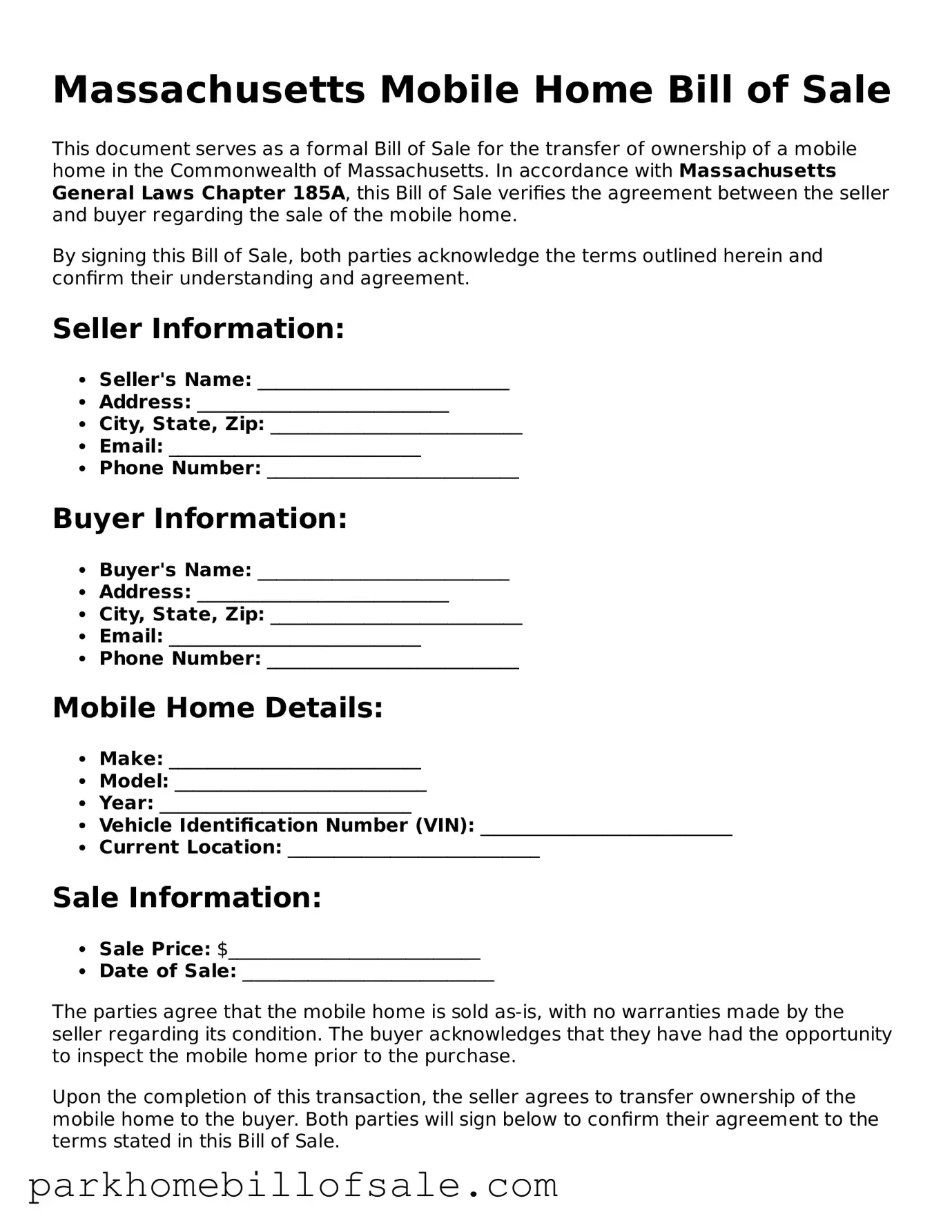Documents used along the form
When transferring ownership of a mobile home in Massachusetts, several important documents often accompany the Mobile Home Bill of Sale. These documents help ensure that the transaction is clear, legal, and protects the interests of both the buyer and the seller. Below is a list of common forms used in conjunction with the Bill of Sale.
- Title Transfer Form: This document officially transfers the title of the mobile home from the seller to the buyer. It is essential for establishing legal ownership and must be submitted to the appropriate state authority.
- Affidavit of Ownership: This sworn statement verifies that the seller is the legal owner of the mobile home and has the right to sell it. It helps prevent disputes about ownership.
- Sales Agreement: This document outlines the terms of the sale, including the purchase price, payment method, and any conditions agreed upon by both parties. It serves as a contract to protect both the buyer and seller.
- Inspection Report: An inspection report details the condition of the mobile home before the sale. It can help buyers make informed decisions and may be required by lenders or insurance companies.
- Proof of Insurance: This document shows that the mobile home is insured. Buyers often need to provide proof of insurance before finalizing the purchase, ensuring that the home is protected from potential risks.
Having these documents in order can simplify the sale process and provide peace of mind for both parties. It is advisable to review each document carefully and consider seeking legal advice to ensure compliance with state laws.
